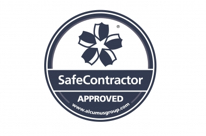At Cartwright’s because we are passionate about the work that we do, we are happy to announce that since 2013 we have been a Zero 2 Landfill company.
But what does Zero 2 Landfill mean and how is it helping the environment?
What is Zero Waste to Landfill
Zero waste to landfill is a specific goal where the interpretation is that at least 99% of generated waste is diverted away from landfill. The waste that’s diverted is then reused, recycled, composted, or sent to energy recovery.
Being a Zero 2 Landfill company means that we are continually improving our waste management, helping us to implement and move our business towards a more circular use of resources.
Why is it important?
According to Carbon Trust, “around 3% of the UK’s total greenhouse gas emissions comes just from the methane arising from the decomposition of biodegradable waste at landfill sites”.
If methane leaks into the atmosphere, it absorbs the heat from the sun, causing the atmosphere’s heat to increase. Due to this, it is considered a greenhouse gas, much like carbon dioxide. (edf)
That 3% would increase with more waste sent to landfills, which is why it is important to properly recycle the waste we get, to help reduce our waste and combat globale warming.
Thankfully, with the help of waste companies moving towards a Zero 2 Landfill modle, between 2012 and 2014 the total amount of commercial and industrial waste produced in the UK was reduced by more than 5 million tonnes, a reduction of 15 percent in just two years.
With new developments that are being made in waste disposal and recycling, this continually improving.
What We Do at Cartwrights Waste Disposal
At Cartwright’s because we are passionate about the work that we do, we are happy to announce that since 2013 we have been a Zero 2 Landfill company – meaning the majority of the waste is recycled.
Currently, we recover 12 different types of waste that can be reused and we are working on many more. Not all waste can reused, for certain types there simply isn’t a commercially viable solution available on the market. Any waste that cannot be re-used is sent for incineration as Refused Derived Fuel (RDF) or solid recovered fuel (SRF) to various plants in the UK and Europe.





